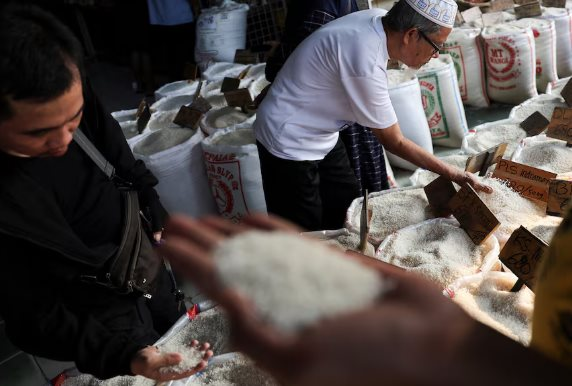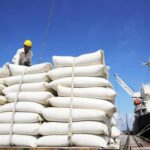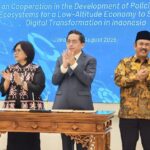
Illustrative Image
Rice prices in Indonesia have recently surged to record highs, despite abundant harvests and substantial reserves. This phenomenon is attributed to the government’s new procurement policy aimed at supporting farmers, which has inadvertently disrupted the market and impacted consumers.
Official data reveals that the price of medium-grain rice in Indonesia reached 15,950 rupiah per kilogram (approximately $0.96 USD) in August, marking a nearly 5% increase since the beginning of the year and surpassing the previous record set in March 2024. Although prices slightly cooled in September, the overall rise from early 2023 remains at over 24%.
This escalation coincides with President Prabowo Subianto’s administration intensifying its food self-sufficiency agenda. Since January, Jakarta has raised the official purchase price for unmilled rice from 6,000 to 6,500 rupiah per kilogram, while tasking the state-owned food corporation Bulog with acquiring 3 million tons of domestic rice—nearly triple the previous year’s target. By March, regulations were further relaxed to allow the purchase of rice “of any quality,” rather than strictly adhering to moisture and breakage standards.
Analysts argue that this approach compelled Bulog to accumulate vast quantities of subpar rice, forcing thousands of milling plants to outbid each other for higher-quality supplies. Many farmers capitalized on the situation by swiftly selling their produce to secure favorable prices, further driving market rates upward. As of September 8, Bulog’s reserves had swelled to nearly 4 million tons, nearly double the figure from the end of last year.
Last month, Indonesian inspectors reported that 8 out of 35 surveyed supermarkets in Jakarta had empty rice shelves. Their findings indicated that the price hike stemmed not from supply shortages but from inefficient rice management practices. Authorities have accused several milling companies of market manipulation, and police have charged 30 officials with violating consumer protection laws.
To mitigate the crisis, the government has directed Bulog to release 1.3 million tons of rice into the market by year-end, with over 210,000 tons already distributed as of September 20. While prices have begun to stabilize, consumers continue to express frustration over the scarcity of high-quality rice.
This situation unfolds against projections of a 10% increase in domestic rice production for 2025, reaching 33.52 million tons—exceeding the estimated consumption demand of 31.2 million tons. Indonesia is also expected to forgo imports this year, following its export of 4.52 million tons in 2024.
In contrast to Indonesia’s trend, global rice prices are declining, with Thailand’s 5% broken rice dropping by 21.5% as of August.
Source: Reuters
Vingroup, Led by Billionaire Pham Nhat Vuong, Eyes Solar Power Projects in Indonesia
On September 19th, Vingroup signed a Memorandum of Understanding (MoU) with Indonesian state-owned enterprise PT. Sulsel Andalan Energi in South Sulawesi, Indonesia. This partnership focuses on renewable energy, specifically large-scale solar power projects.
From South Korea to Indonesia, CT Group Seals the Deal with Governments
CT Group has once again made history with a landmark collaboration. Following the successful export of 5,000 UAVs to South Korea, they have now partnered directly with the Indonesian government, solidifying Vietnam’s emerging global presence.

















